2017 Presidents Cup: Should The USA Fear The Internationals More Than Europe?
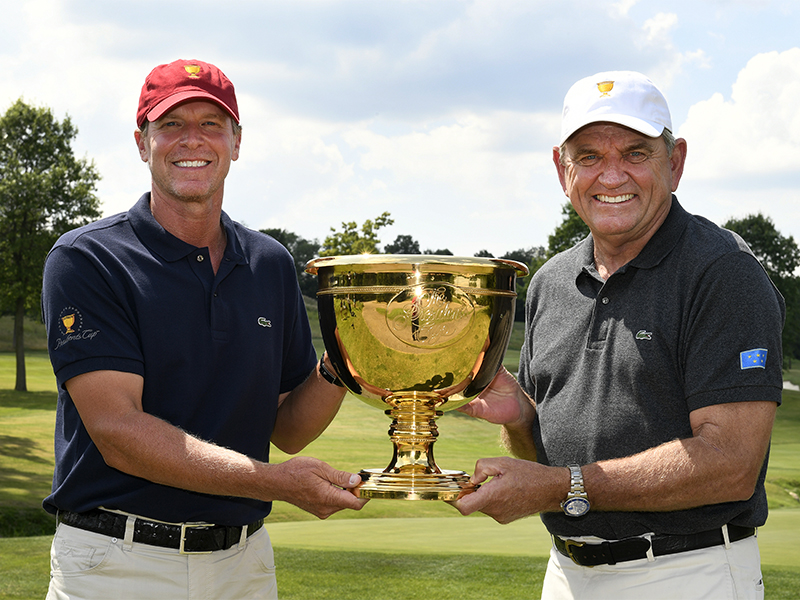
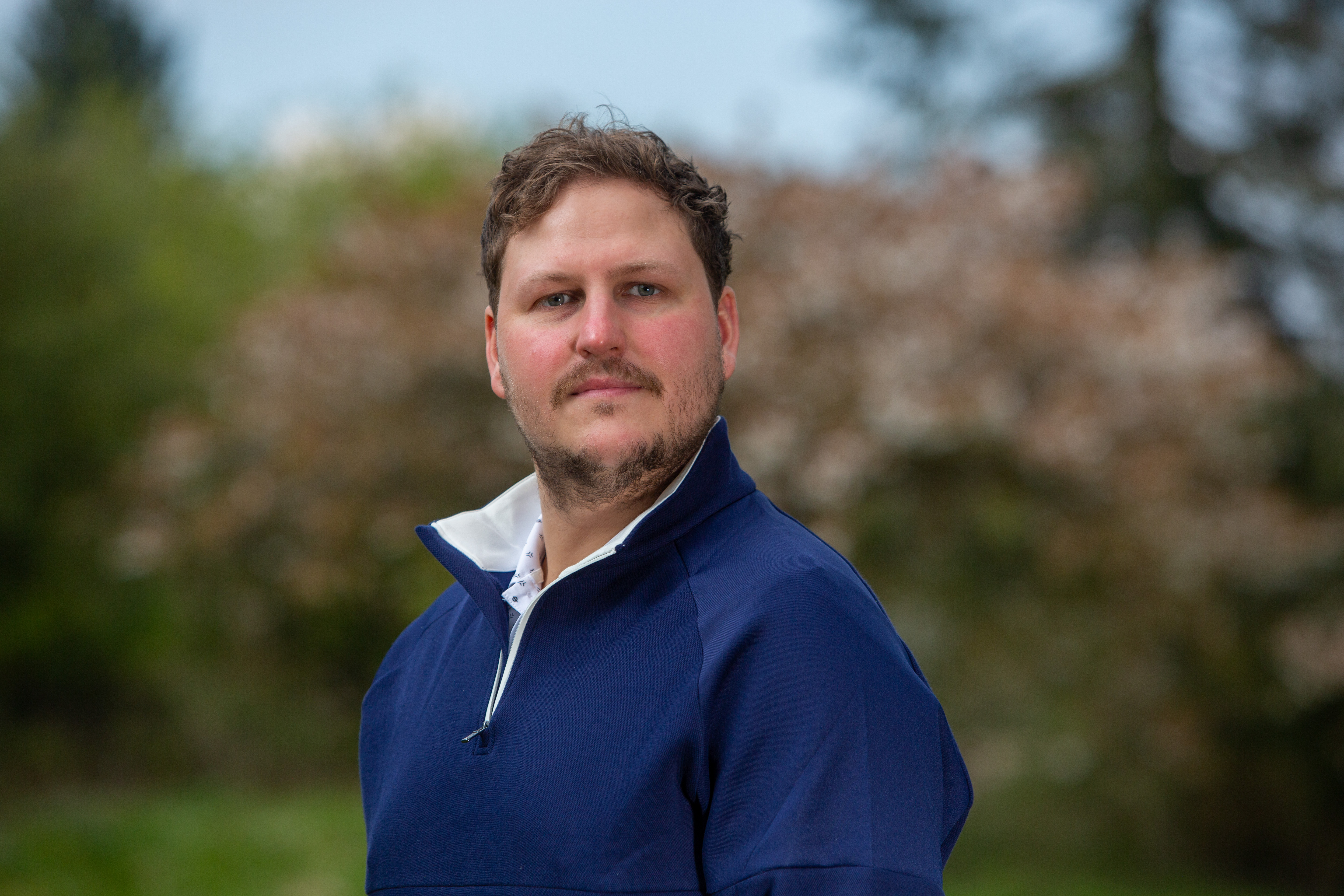
Nick Bonfield looks ahead to the 2017 Presidents Cup and asks whether the Internationals are stronger than Europe's prospective team for next year's Ryder Cup at Le Golf National
2017 Presidents Cup: Should The USA Fear the Internationals More Than Europe?
This week, the 2017 Presidents Cup takes place at Liberty National Golf Club in New Jersey. It will see a 12-strong team of Internationals – made up of players from outside North America and Europe – take on an American side absolutely laden with talent.
But do the Internationals have a chance in the 2017 Presidents Cup, what lessons will we learn for next year’s Ryder Cup and is Europe now the third-best team when it comes to international and intercontental golf?
To answer the first question, yes. The Internationals absolutely have a chance. Let’s look at the team a little more closely.
The top end of the line-up is extremely strong. Hideki Matsuyama – World No. 3 – had one of the best seasons of anyone on the PGA Tour, while Jason Day, 7th in the world, showed glimpses of a return to form during the FedExCup play-offs.
Related: Jason Day swing sequence
Get the Golf Monthly Newsletter
Subscribe to the Golf Monthly newsletter to stay up to date with all the latest tour news, equipment news, reviews, head-to-heads and buyer’s guides from our team of experienced experts.
Adam Scott, the 2013 Masters Champion, has won 13 times on the PGA Tour, and Louis Oosthuizen and Charl Schwartzel are world-class players and also Major Champions.
Behind them, Marc Leishman is one of the form players in world golf and Branden Grace – who shot the lowest round in Major history earlier this year – has a winning Presidents Cup record.
Granted, the team does tail off a little bit after that, and the outcome will probably hinge on how the likes of Adam Hadwin, Si Woo Kim, Anirban Lahiri, Jhonnatan Vegas and Emilliano Grillo perform, but they are all PGA Tour winners bar Lahiri, who has won 15 times around the world.
They will be going up against an American side jam-packed full of talent, but look a little closer and there are some weaknesses. Also bear in mind that 11 of the 12 players in the US side made it through to the Tour Championship – the final event of a mentally and physically draining FedExCup play-offs – so fatigue could be a factor.
You could argue that some of the team showed signs of tiredness during the Tour Championship itself. Rickie Fowler, who looked uncharacteristically out of sorts at East Lake, finished the 30-man event in a tie for 26th, three shots better than team-mates Charley Hoffman and Kevin Chappell.
Hoffman and Chappell are both rookies, as are Kevin Kisner and Daniel Berger, and there’s no telling how they will deal with the occasion. Phil Mickelson, despite owning an impressive Presidents Cup record, didn’t make it to the Tour Championship and hasn’t won on the PGA Tour since 2013, while Matt Kuchar has won less than a third of the Presidents Cup matches he’s taken part in.
Of course, the top end of the roster is incredibly strong, there’s a great mixture of youth, experience and ability and the US is competing on home soil, but there are some reasons for optimism if you’re supporting the International team.
Lessons to learn
In terms of what clues we’ll learn for Le Golf National in 2018, I’ll be keeping a keen eye on the pairings. I fully expect Jordan Spieth and Justin Thomas to start a formidable partnership that will extend into the years ahead.
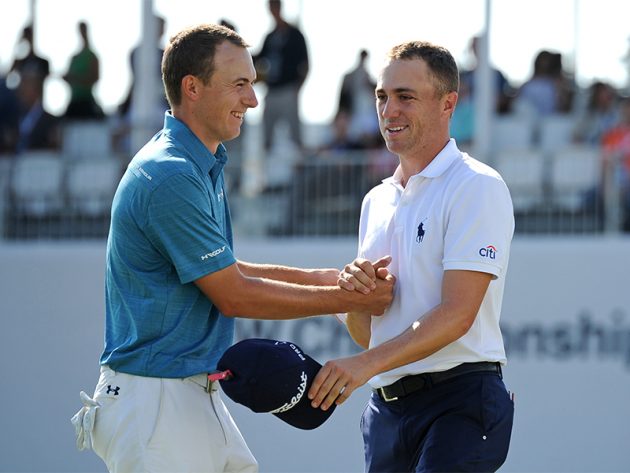
It will also be interesting to see what captain Steve Stricker does with Patrick Reed. The flamboyant Ryder Cup talisman normally plays alongside Spieth, and I think someone like Brooks Koepka would be an excellent partner for him.
Fowler and Mickelson will probably play together, as they did at the Ryder Cup, but with regards the rest of the pairings, your guess is as good as mine. Five members of the 2016 Ryder Cup team – Jimmy Walker, Brandt Snedeker, Zach Johnson, JB Holmes and Ryan Moore – haven’t made the side, so Stricker will need to come up with some fresh combinations.
It would make sense for Dustin Johnson to play alongside a rookie – perhaps a Kisner or a Berger – but I’m not sure what Stricker’s strategy will be when it comes to the likes of Chappell, Kuchar and Hoffman.
I honestly think this contest will be closer than a lot of people are predicting, and closer than next year’s Ryder Cup at Le Golf National. I think the recent Ryder Cup trend of European domination will give way to a period American success, at least over the next two contests.
Reasons to worry?
Put simply, I’m a touch concerned about our line-up for next year.
Ryder Cup stalwarts and players who have been instrumental to our recent success – the likes of Lee Westwood, Luke Donald, Ian Poulter and Graeme McDowell – probably won’t make the team.
Looking at last year’s side, you’d also be surprised, on current form, if Martin Kaymer, Andy Sullivan, Chris Wood and Danny Willett were to make the side.
In my mind, the bankers are Rory McIlroy, Sergio Garcia, Henrik Stenson, Justin Rose, Matt Fitzpatrick, Thomas Pieters and Jon Rahm (and perhaps Rafa Cabrera-Bello given how he performed at Medinah). That leaves five spaces, which will mostly be filled by rookies.
There are a host of talented Europeans who could become starts on the global stage – Jordan Smith, Thomas Detry, Renato Paratore, Aaron Rai, Callum Shinkwin and Lucas Bjerragaard to name but a few – but I think 2018 will come too soon for them.
You’d like to think Shane Lowry, Alex Noren and Tommy Fleetwood will be there or there abouts, but they have all tailed off recently and there’s absolutely no guarantee they will force their way in given the competitive nature of qualifying, especially now there are only four slots available via the European points list.
The top end of the European line-up for the 2018 Ryder Cup will undoubtedly be very strong, but there are more than a few question marks when it comes to filling the remaining spaces – an area that clearly contributed to Europe’s loss at Medinah last year.
For now, though, let’s look forward to what looks set to be a riveting 2017 Presidents Cup. I think it’ll be close, but I’m expecting USA to win somewhere in the region of 15.5 – 12.5.

Nick Bonfield joined Golf Monthly in 2012 after graduating from Exeter University and earning an NCTJ-accredited journalism diploma from News Associates in Wimbledon. He is responsible for managing production of the magazine, sub-editing, writing, commissioning and coordinating all features across print and online. Most of his online work is opinion-based and typically centres around the Majors and significant events in the global golfing calendar. Nick has been an avid golf fan since the age of ten and became obsessed with the professional game after watching Mike Weir and Shaun Micheel win The Masters and PGA Championship respectively in 2003. In his time with Golf Monthly, he's interviewed the likes of Rory McIlroy, Justin Rose, Jose Maria Olazabal, Henrik Stenson, Padraig Harrington, Lee Westwood and Billy Horschel and has ghost-written columns for Westwood, Wayne Riley, Matthew Southgate, Chris Wood and Eddie Pepperell. Nick is a 12-handicap golfer and his favourite courses include Old Head, Sunningdale New, Penha Longha, Valderrama and Bearwood Lakes. If you have a feature pitch for Nick, please email nick.bonfield@futurenet.com with 'Pitch' in the subject line. Nick is currently playing: Driver: TaylorMade M1 Fairway wood: TaylorMade RBZ Stage 2 Hybrid: Ping Crossover Irons (4-9): Nike Vapor Speed Wedges: Cleveland CBX Full Face, 56˚, Titleist Vokey SM4, 60˚ Putter: testing in progress! Ball: TaylorMade TP5x
-
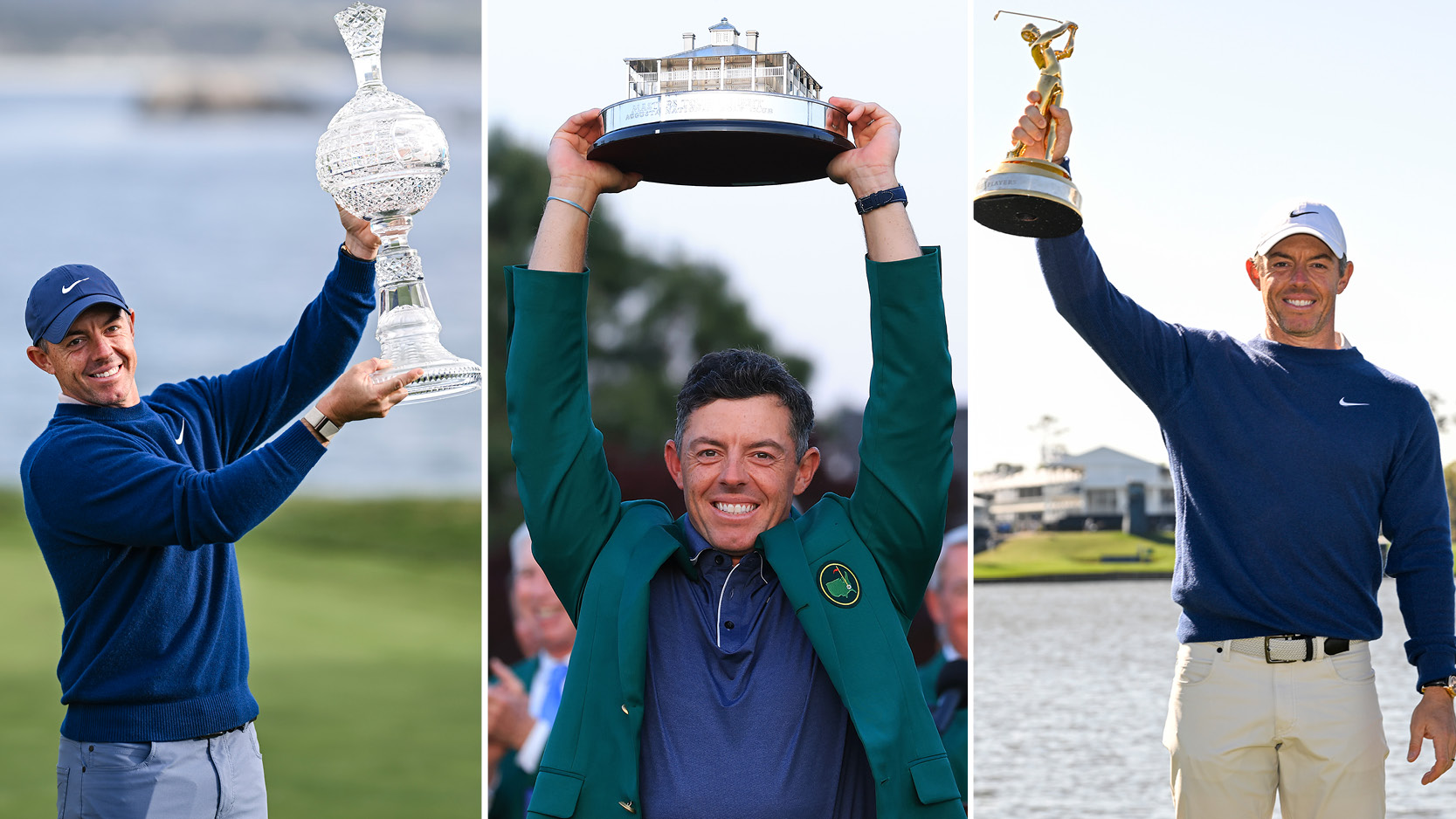 'He Won't Stop Striving For Improvement' - Sports Psychologist Believes Rory McIlroy Has The 'Mindset, Focus And Drive' To Carry On Excellent Start To 2025 Season
'He Won't Stop Striving For Improvement' - Sports Psychologist Believes Rory McIlroy Has The 'Mindset, Focus And Drive' To Carry On Excellent Start To 2025 SeasonWe spoke to experienced Sports Psychologist, Gareth Shaw, about McIlroy's incredible Masters win and how the five-time Major can push on even further in 2025
By Matt Cradock
-
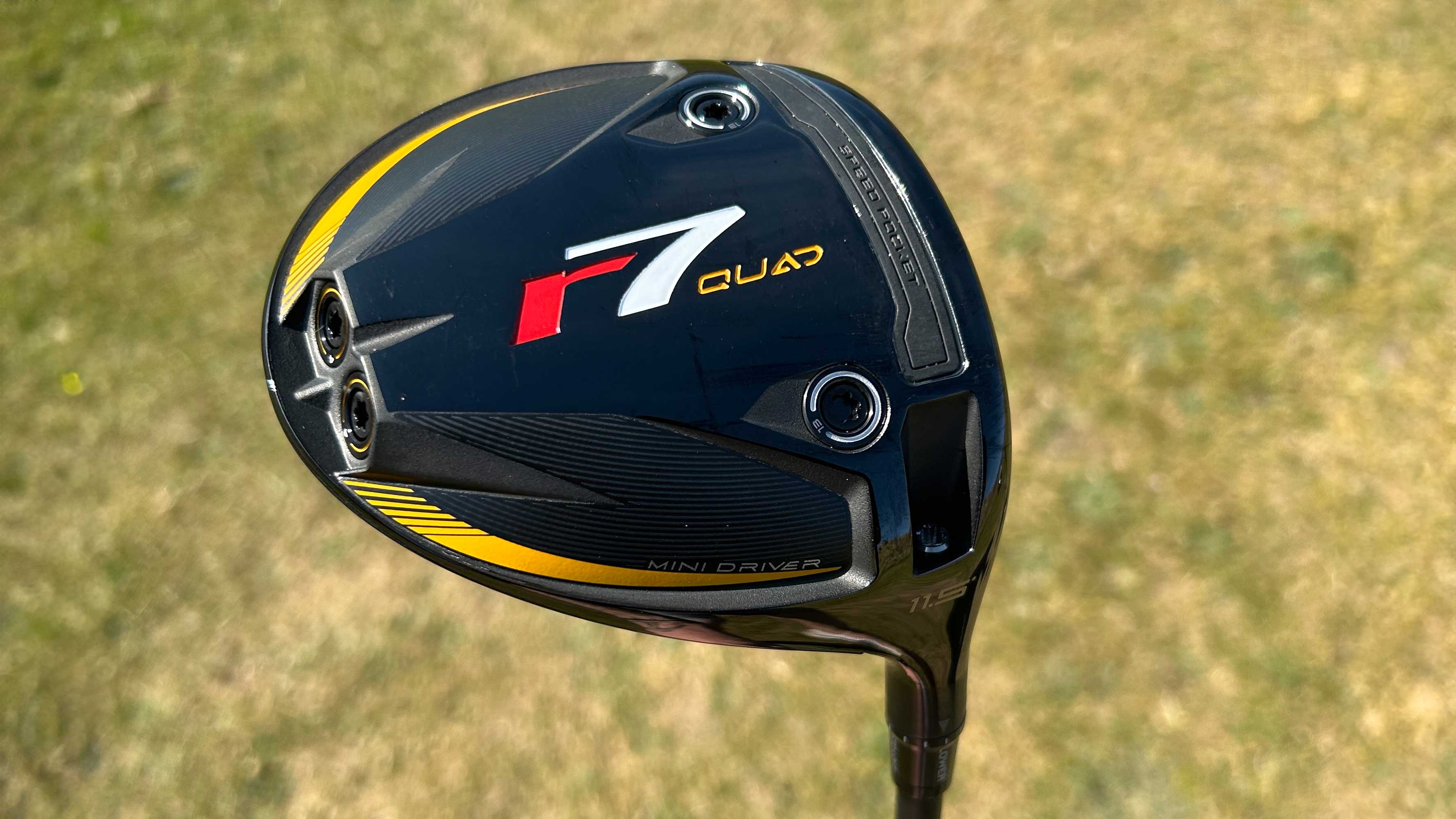 I Think I've Found My New Favorite Club Of 2025 And It Might Surprise You
I Think I've Found My New Favorite Club Of 2025 And It Might Surprise YouPGA Pro and driver expert Joe Ferguson has been testing out the latest of TaylorMade’s ‘retro’ mini-driver offerings, the R7 Quad Mini, and it didn't disappoint…
By Joe Ferguson